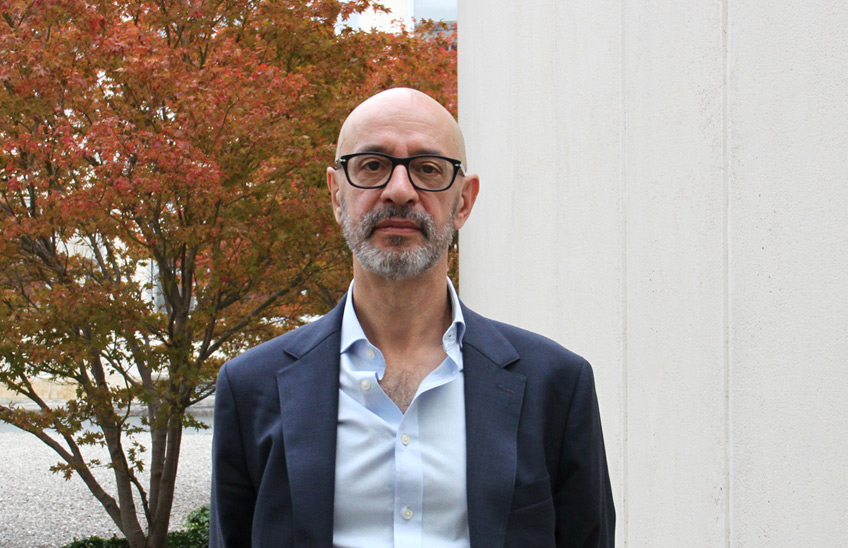"Narratives have changed the way we see the world."
Roberto Dainotto (Duke University) has talked about the two-speed Europe in a seminar of challenge ICS 24-25.

PhotoNataliaRouzaut
/Roberto Dainotto, Professor of International Comparative Literature, language and programs of study at Duke University (USA).
16 | 10 | 2024
"Narratives have changed the way we see the world". This was the opinion of Roberto Dainotto, professor of International Comparative Literature, language and programs of study at Duke University (USA). The expert has offered the session 'Orienting Europe' in the framework of the challenge ICS 24-25 'Orientalism and Occidentalism: crossed glances' of the Institute for Culture and Society (ICS) of the University of Navarra. In it, he has reflected on the negative view that exists about the countries of southern Europe. "The difference between north and south is rhetoric but many people have believed it and it has become a commonplace," he said.
According to Dainotto, this north-south dichotomy began in the 18th century with Montesquieu's treatises, which blamed the southern countries for more careless behavior due to the benefits of the Mediterranean climate. However, this idea has taken root to the present day. "Today it is said that the south lives beyond its means, something that is refutable," he pointed out. For the expert, the problem with these assumptions is that they end up creating realities. For example, a lack of financing by the European Union (EU) for companies in the south or the reluctance to help Greece in the 2008 crisis "created, in large part, by German real estate investments".
A very illustrative image was the creation of the concept PIGS (pigs) by EU bureaucrats to refer to Portugal, Italy, Greece and Spain in 2007. The researcher explained that some European politicians feared that these countries would not meet the criteria agreed in the Maastricht Treaty and referred to them in a derogatory way. In fact, the researcher has regretted that the southern countries themselves are also seen in the same negative light. This can be seen in common self-references such as "tambourine country" in Spain or "pizza and mandolin country" in Italy. The researcher has highlighted the importance of commonplaces and narratives when constructing political discourses. By using concepts shared by all, they convince and create public opinion.
"We can overcome this negative view as it is not based on real facts," Dainotto added. Being a rhetorical difference, a commonplace accepted by the whole society and not based on a reality, these ideas can change throughout history. "The concept of what a woman is has changed over the last 60 years," she has expounded, though not without time and work.
Inferiority complex
According to the expert, the negative view of southern Europe has an impact on the country itself, which has to live with a feeling of inferiority. This can create two realities. On the one hand, there can be a fear of not being sufficiently European, so the country may make drastic changes to resemble its northern neighbors. "In Italy, many cuts were made in social measures, such as pensions, in order to comply with the Maastricht agreements," he explained.
On the other hand, this feeling of inferiority can provoke the opposite effect: Euroscepticism. There is a yearning to return to a mystical and glorious past and a desire to break with Brussels. However, Dainotto warned that this feeling of inferiority, in addition to nostalgia, creates division: "Its effects have already been seen in the history of the 20th century with fascism".




